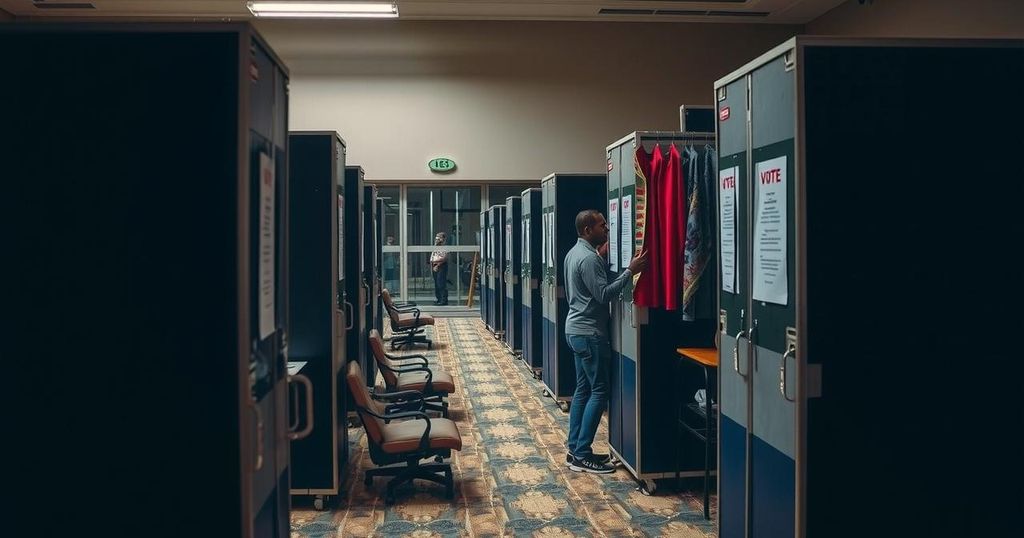Namibia Faces Election Turmoil Amid Allegations of Irregularities
Namibia’s elections have been marred by irregularities, leading to an extension of voting due to logistical issues. The IPC, challenging Swapo’s dominance, has urged citizens to persist in voting despite frustrations. Young Namibians face economic inequalities that heighten demands for political change, as similar unrest unfolds in Mozambique over contested election results.
Namibia is currently experiencing significant electoral turmoil as presidential and parliamentary elections have been extended into the weekend due to reported irregularities. The Electoral Commission of Namibia (ECN) admitted to logistical errors, such as insufficient ballot papers and malfunctioning electronic devices, which hampered the voting process. As a result, the ECN announced that polling stations would remain open until Saturday night to accommodate voters who had been waiting in long lines for hours.
The opposition party, Independent Patriots for Change (IPC), which seeks to challenge the long-standing dominance of the South West Africa People’s Organisation (Swapo), has expressed discontent concerning the extension. IPC presidential candidate Panduleni Itula emphasized the need for voters to continue participating despite the irregularities. He remarked, “Regrettably, there has been a multitude of irregularities” but urged citizens to fulfill the voting process.
Opposing candidate Netumbo Nandi-Ndaitwah, who serves as vice president and could potentially become the first female leader of Namibia, faces opposition from a youth demographic that is increasingly frustrated with economic stagnation and inequality. Young voters have expressed their dissatisfaction, highlighting the prevailing issues in a country that, while classified as upper-middle-income by the World Bank, suffers from significant disparities. This electoral scenario echoes the political shifts seen in other Southern African nations where previously dominant liberation parties have faced electoral rejection.
Namibia’s election difficulties coincide with escalating unrest in Mozambique, where allegations of vote rigging during elections have incited protests against the ruling Frelimo party. These events suggest a potential shift in political favor across the region, as both countries navigate their respective electoral challenges and the populace’s growing demand for change.
Namibia, a nation that gained independence from colonial rule in 1990, has been predominantly governed by the South West Africa People’s Organisation (Swapo). The party emerged as a key player in the fight for freedom from apartheid. However, in recent years, it faces increasing pressure from the opposition, particularly from the Independent Patriots for Change (IPC), due to rising discontent among the youth over economic opportunities. The social and economic backdrop of Namibia plays a critical role in understanding the current electoral tensions and the populace’s frustrations.
The extension of voting hours in Namibia amid reported irregularities raises questions about the integrity of the electoral process and reflects the growing tensions between the ruling party and an increasingly disillusioned electorate. As the IPC rallies support for change, the outcome of these elections may signal a critical shift within Namibia’s political landscape. Moreover, these developments underscore broader trends in Southern Africa, prompting observers to consider the future of liberation parties in the region.
Original Source: www.aljazeera.com




Post Comment